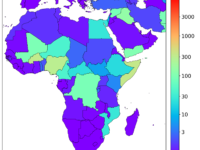The eBox Citizen is a digital mailbox in which Belgian citizens can receive official documents from Belgian public instances at every level. Given the complex nature of Belgium’s federal state structure, the deployment of such a centralized eBox has proven to be a crucial step in the continuous digitalization of public services in Belgium. It got an enormous boost throughout the Covid-19 pandemic, as the quickest way for citizens to receive an invitation for their vaccination was via their…
Innovation Tag: Public Service Delivery
TCS is part of the Government Data Architecture initiative to enable secure data sharing and usage across public service, built upon an integrated data management framework that manages the data lifecycle effectively from acquisition to destruction. It is a one-stop central sensor data platform that provides end-to-end data sharing services with exploitation environment.
KSPO has created the SOLF, Seoul Olympic Legacy Forum as a platform where Olympic legacy entities from all around the world gather for the first time to share and collaborate on sustainable development plans for the Olympic Legacy. Through the SOLF, Olympic legacy entities communicated and cooperated with each other to solve the long-term social problems after the Olympic games and to deliver intangible legacy of Olympic spirit and world peace to future generations.
A proof of concept has been created to incorporate design techniques in many elements of a PoD's life cycle, planning for future demands and overcoming existing hurdles. The proposed strategy prioritizes the needs of persons with disabilities and helps them acquire the resources and services they need. It also helps families gain confidence in caring for a disabled kid. This helps POD engage, lead, create, and sustain life.
Case Study
Tertius – An online construction marketplace that easily connects property developers with…
Tertius has resulted in massive productivity gains for the building industry in DC, enabling developers & property owners to book (at a nominal cost) certified third party agency inspections. Outcome: Far more efficient matching of demand & supply for permit inspections, substantially reducing turnaround times. Tertius has driven revenue to the taxpayers, increased regulatory oversight, increased safety in the building community, saving property owners and developers thousands of dollars.
Project Sampoorna, successfully implemented in Bongaigaon district of Assam, is a model that can be easily implemented anywhere in reducing child malnutrition. This project has resulted in reduction of malnutrition in children by 95.6 % within 1 year in Bongaigaon district using very less economic investment. It is an initiative for tackling SAM and MAM by using Weight for Height growth chart & Empowering Mothers by employing Buddy Mother concept along with community participation.
Till 2017, the Ministries and govt. organizations took individual, decentralized & disintegrated initiatives to digitize public services. But most initiatives were facing challenges to provide services due to unplanned design and implementation. To overcome this, Digital Service Design Lab is an innovative method where service providers, service recipients and IT experts design digital services and prepare digitization masterplan together for their respective ministry/org. within just 6-7 days.
The Ukraine war established a commitment to work across sectors to improve digital services to refugees. Focus on end user needs and an unbureaucratic organizational model have produced tangible results such as:
Better update of address information in national register
Electronic identification - access to digital services
Twelve agencies worked with obstacles and bottlenecks in the refugee's user journey, with the objective of good transitions between services.
Discovery as a Service (DaaS) enables successful delivery of UK Policing Technology through standardised and outcome based discoveries to provide evidence and overcome inconsistency in project initiation. By employing user centric thinking, agile delivery, innovation, and multi-disciplinary teams, DaaS ensures new national technology initiatives provide beneficial capabilities to UK Law Enforcement so they safeguard the UK public. This service is the first of its kind in the Home Office.
The Violence Early-Warning System (ViEWS) is a publicly available data-driven forecasting system at the frontier of research that generates monthly predictions of conflict fatalities up to 36 months ahead – throughout Africa and the Middle East. The project launched in 2017 to help policy-makers and practitioners plan anticipatory action and humanitarian interventions with a transparent and evidence-based approach. It is based at Uppsala University and Peace Research Institute Oslo.




